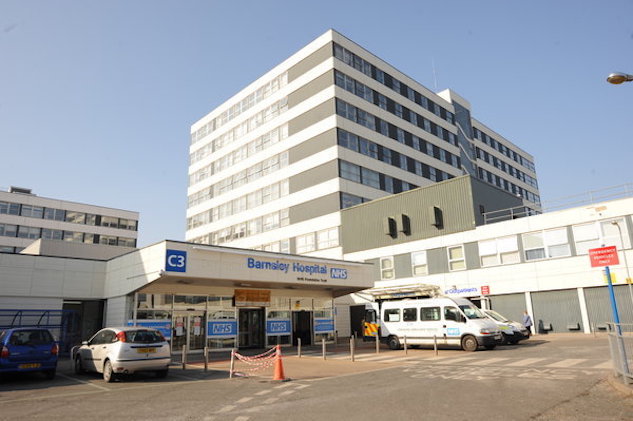STRESS-RELATED incidents equated to more than a third of staff absences at Barnsley Hospital in the year to June - as figures topped the equivalent of more than 200 years of missed work due to ‘chronic excessive workload’.
NHS Digital figures show there were roughly 27,300 full-time equivalent days lost due to stress-related absences in the year to June at Barnsley Hospital NHS Foundation Trust - accounting for 33.8 per cent of the total 80,700 days lost.
It is up from 33.1 per cent of staff absences in 2021/22.
It means that a total of 221 years of full time equivalent days of work were lost at the Gawber Road site in the year to June - and 74 of those years related to stress.
The figures cover all professionally qualified clinical staff, clinical support staff, and infrastructure support staff who were absent due to anxiety, stress, depression or other psychiatric illnesses.
A spokesperson for Barnsley Hospital told the Chronicle that bosses are working tirelessly to support their staff.
They added: “Similar to the NHS as a whole, mental health related absence remains our top reason for sickness absence.
“Additional to the support in place for NHS workers nationally, support provided by local partner organisations and specialist providers, we continue to expand our in-house counselling service and develop new ways to support the mental health and wellbeing of those who work for us.
“In the past few years we have reviewed and revised employment-related policies to improve opportunities for all colleagues, with many colleagues now taking advantage of flexible working, flexible retirement, rostering, and family friendly policies.
“In the new year we will expand support significantly with new systems and training for managers, will continue to build on our award-winning menopause support, and will develop our staff support networks with the help of our dedicated inclusion and wellbeing team.
“People are our most important asset - we could not provide the services we do without them, and we do our utmost to support them.”
Alex Baylis, The King’s Fund assistant director of policy, said the Health and Safety Executive has found health and care staff consistently report higher rates of work-related stress.
He added a key cause of this stress is ‘chronic excessive workload’.
He said: “Workload pressure can particularly come from things like working extra hours, or managing a higher number of patients, because of staff shortages.
“It can build up if that’s the situation day after day.
“And it can be exacerbated by things like working across chaotic teams or processes, not having the equipment that’s needed, not having breaks, or unsupportive managers.”
While leadership at team level is essential in supporting staff, Mr Baylis added the overall NHS staff shortages must be addressed.
“Although everyone wants to reduce the current long waiting times as quickly as possible, that must not override the need for a culture of supportive management and supervision,” he said.



























